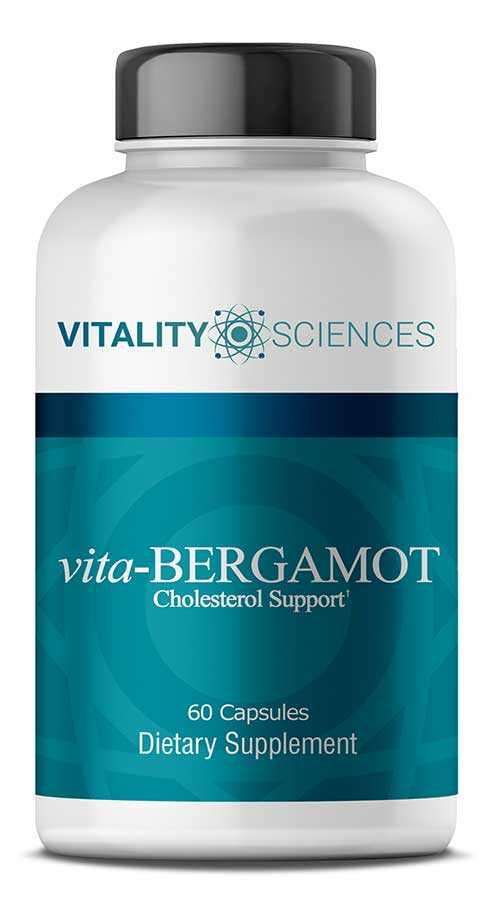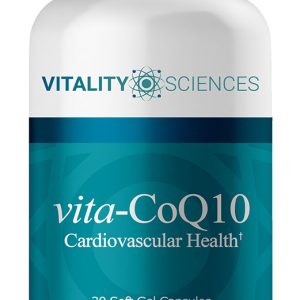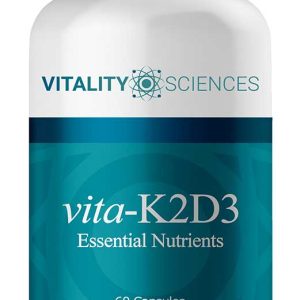Description
Overview
Optimizing cardiovascular health is a leading concern for many adults, and maintaining balanced cholesterol levels are an important part of that process. Though cholesterol can be consumed through food, circulating cholesterol levels are primarily produced and controlled by the liver using the rate control enzyme, HMG-CoA reductase (HMGCR). Because of its pronounced role in cholesterol synthesis, inhibiting HMGCR has become a primary target of many traditional therapies. Numerous clinical trials have shown the specific BPF found in Vita-Bergamot works at the level of the liver to help maintain and support healthy cholesterol levels and preserve coronary arteries by maintaining normal inflammatory balance.
What are Bergamot Polyphenolic Fractions?
Bergamot (Citrus bergamia) is a citrus plant that grows almost exclusively in the narrow coastal Calabria region in southern Italy. The local population quickly discovered bergamot juice could be used to help support healthy cholesterol levels and optimize cardiovascular wellness. Bergamot’s health benefits derive from its unique profile of phenolic compounds such as, neoeriocitrin, neohesperidin, naringin, rutin, neodesmin, rhoifolin and poncirin. Naringin has been shown to be beneficial in maintaining normal inflammatory balance, while neoeriocitrin and rutin have been found to exhibit a strong capacity to quench free radicals and maintain healthy LDL cholesterol levels. Also, bergamot is rich in brutieridine and melitidine, which have a unique ability to dampen HMG-CoA reductase. Using a patented extraction technology through collaborative works of various universities and research institutions, Vita-Bergamot contains Bergamonte®, the highest concentration available of these potent phenolic compounds.*
Cholesterol-Balancing Properties†
In a placebo-controlled, clinical trial consisting of 77 patients divided into four treatment groups, 1,000 mg of BPF helped maintain healthy levels of all blood lipid markers (HDL, LDL, TC, TRI).1 Also, this same clinical trial showed that BPF activated the inflammatory-balancing enzyme AKT and reduced malondialdehyde production in neutrophils.1 Another clinical trial conducted on 80 patients over six months showed 1,500 mg of BPF maintained normal levels of small density LDL and supported normal carotid IMT thickness.2 In a placebocontrolled study involving 238 patients, 1,000 mg of BPF maintained healthy cholesterol levels and outperformed the group receiving the traditional therapy.3
Following a 60-day wash out phase in patients who had been on traditional therapies, 1,500 mg of BPF maintained normal LDL levels and optimized several other parameters of cardiovascular health.3 Several other recently published placebo-controlled clinical trials have also documented that BPF can help maintain normal inflammatory balance, antioxidant potential, healthy cholesterol levels, and CoQ-10 levels in humans.4-12





Reviews
There are no reviews yet.